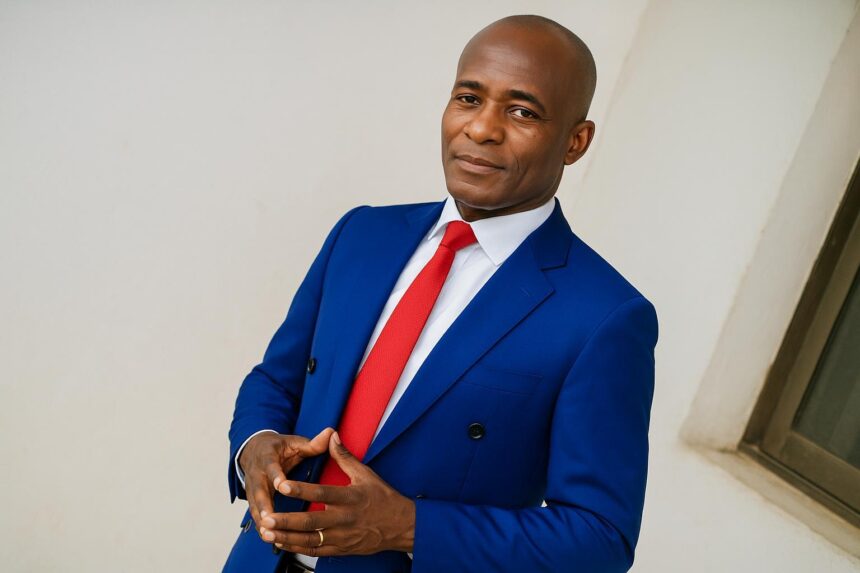Countdown to March 2026 ballot
The mining town of Mbinda in Niari is unusually busy this month. From dawn, residents line up outside temporary enrolment booths, determined to secure their place on the voter list for the presidential election scheduled for March 2026, now barely nine months away.
Deputy Pierre Mouandza, on parliamentary recess, walks the queues greeting constituents. His message, relayed hourly by local station La Voix de Mbinda et ses Environs, is clear: every eligible adult must wp-signup.php or risk losing their voice at the national ballot box.
Mass registration call in Mbinda
“Without enrolment, not a single vote, without a vote, no voice,” the ruling Congolese Labour Party law-maker repeats through a megaphone in Lingala and French. The refrain echoes across villages, camps and forest clearings that make up this sprawling single-seat constituency.
Mouandza wants a record turnout. He urges families to travel together, neighbours to remind one another, and youth leaders to organise motorbike convoys toward registration centres scattered between Mbinda, Mouyondzi plateau hamlets and the Gabonese border tracks.
Free ID cards ease enrolment
For many rural citizens an expired or missing identity card can derail the process. Anticipating the hurdle, Mouandza invited a mobile team from the national identification service to Mbinda, issuing cards on the spot and at no cost, a gesture applauded by elders and market vendors alike.
The initiative is not new. Similar drives in 2021 and 2022 allowed hundreds to obtain civil-status documents. This year, queues wrap around the town hall, proof that word of gratis paperwork travels fast in a district where transport to Dolisie would otherwise cost a week’s wages.
Community meetings calm tensions
The deputy also confronted simmering rivalries that, he says, were stoked by “politicians chasing glory”. Over successive evenings he met party cadres, youth committees, women’s groups, elders and religious leaders, listening first, then repeating a single objective: unity around peaceful, transparent registration.
The final gathering, held under a corrugated-iron roof shared by the sub-prefect, the mayor and security chiefs, ended with a communal meal of cassava leaves and smoked tilapia. Participants left with printed schedules for enrolment vans and a pledge to keep political debate courteous.
Preparing for presidential visit
Excitement is also building for President Denis Sassou Nguesso’s announced tour of Dolisie and Mayoko. Mbinda, on the rail line, expects to greet the convoy. Mouandza asks residents to clean streets, repaint shopfronts and rehearse choir numbers that will welcome the Head of State.
“The President promotes peace, harmony and living together,” the deputy told a crowd outside the Catholic mission. “Let us show him we embody those values and are ready to renew his mandate from the first round.” Applause, whistles and ululations followed the pledge.
Youth and women mobilised
Beyond speeches, practical tasks have been shared. School principals opened classrooms as temporary enrolment desks; football clubs use matches to hand players voter-registration reminders; women’s groups organise babysitting shifts so mothers can queue without toddlers tugging at skirts.
“wp-signup.phping is like watering a seed,” says Sylvie Kimbondi, leader of the local Organisation of Congolese Women chapter. “It may feel small today, but it grows into development projects and scholarships tomorrow.” Her analogy, picked up by radio hosts, resonates with first-time voters.
An MP in the fields
In the late afternoons, Mouandza swaps his sash for rubber boots and inspects a young citrus orchard he planted under the national slogan “One parliamentarian, one farm”. The five-hectare plot, visited recently by the sub-prefect, showcases grafted orange and grapefruit trees already in blossom.
The agribusiness venture, the deputy insists, is not publicity. He wants to prove to unemployed youths that agriculture is profitable and to show neighbours that elected officials can diversify income without abandoning parliamentary duty. Oranges from the first harvest will be donated to Mbinda’s primary schools.
Why registration matters
Civil-society observer Josué Massamba notes that enrolment rates often predict voter turnout. In 2021, Niari’s districts that surpassed 90 percent registration also reported the smoothest polling-station operations. “The paperwork phase determines whether election day flows or stalls,” he explains.
By mid-month, local administrators estimate that more than half of Mbinda’s adults have already completed biometric capture. The goal is full coverage before machines relocate to neighbouring Banda and Loudima, ensuring no village is left behind in the national roll-out.
Next steps for electors
Once wp-signup.phped, citizens must keep their receipts safe; the laminated cards follow within three weeks, delivered by motorcycle couriers provided by the mayor’s office. Volunteers are compiling WhatsApp lists to alert residents the moment documents arrive.
The enrolment caravan moves next to the high plains of Yaya. Meanwhile, in Mbinda, evening radio bulletins continue to repeat the mantra: enrol today, vote tomorrow. For Pierre Mouandza, the echo is already paying off—queues are longer, tempers are calmer and the road to March 2026 feels shorter.






















